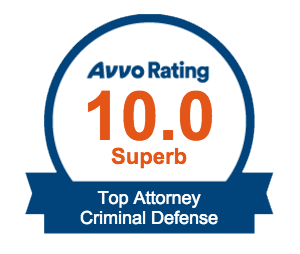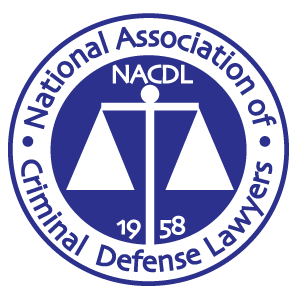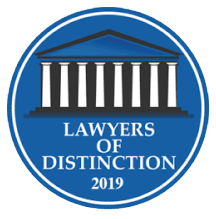If the police arrest you in California for committing a third time DUI offense, you are at a risk of facing two separate suspensions of your driver's license. You will get a license suspension for three years if the court convicts you of a third DUI offense. However, if you install an ignition interlock device (IID), the Department of Motor Vehicle may allow you to continue operating your vehicle. The mandatory period for the IID device is two years. If you attend a DMV hearing in California and you lose, you will face a license suspension lasting one year. Just like in the case of a three-year license suspension, you may operate your vehicle if you install an ignition interlock device. The DUI Defense Attorney in Van Nuys, CA, can advise you on the best move is you are facing a DMV license suspension for committing third time DUI offense.
Understanding a Three-Year License Suspension
If you have two DUI convictions within the last ten years, and you commit an additional DUI offense, you will be guilty of committing third time DUI. The conviction for DUI may be either through a guilty verdict or a guilty plea. The third time DUI conviction will trigger a three-year driver's license suspension in California. This is in accordance with the California Vehicle Code 13352 (a) (4). At times, the third offense may be less than a crime of DUI. For instance, the third offense may be an exhibition of speed or a wet reckless. If this is the case, you can avoid the court-triggered three year DUI license suspension.
Is it possible to avoid the three-year license suspension? To successfully avoid the three-year license suspension in California, you have to meet two conditions. First, you must avoid a court conviction for the offense of driving under the influence (DUI). You must also win your Department of Motor Vehicle (DMV) hearing. However, even if you are not successful in avoiding the license suspension, you can install an ignition interlock device and continue operating your vehicle.
One-Year License Suspension
A third time DUI conviction may automatically trigger a one-year license suspension. The Department of Motor Vehicle takes administrative action against you upon your arrest for a third-time DUI with a BAC of above .08%. This action is distinct and separate from your DUI court case. The DMV will conduct a hearing to determine whether the DMV has grounds to suspend your driver's license. A DUI attorney may represent you during the DMV hearing. It is not mandatory to attend the DMV hearing in person. The license suspension will not take effect if you win during the DMV hearing. A one-year license suspension takes effect if you lose during the DMV hearing. This is in accordance with the California Vehicle Code 13353.3 (b) (2). You may continue to operate your vehicle if you get an ignition interlock device.
Obtaining a Restricted Driver's License
If you get a three-year license suspension in a court conviction, you may go for a restricted license or an IID restricted license. According to Senate Bill 1046 (2018), you can continue operating your vehicle after license suspension if you install an ignition interlock device. This is a breathalyzer machine that will stop your car from starting if the device detects that you have been drinking. As long as you agree to install the device, the Department of Motor Vehicle will allow you to continue driving everywhere you, please. For you to obtain an IID restricted license, you may have to satisfy some additional conditions. For instance, you would have to file an SR22 form. You may also have to complete DUI School in California and pay all the necessary fees. For a third-time DUI offense, the restricted license period is two years.
Instead of obtaining an IID restricted license, you may choose to apply for a restricted license that will allow you to drive to certain places without having to install an IID device. For instance, a restricted license may allow you to operate your vehicle to and from work, school, and treatment facility. To obtain a restricted driver's license, you have to enroll in a 30-month or an 18-month alcohol program. To get the restricted driver's license, you must have SR-22 proof of insurance. You must also have an ignition interlock device installed in your vehicle. You may have to pay a fee of $125 for the reissuing of your driver's license.
Criminal Penalties for a Third Offense DUI
When you commit a third offense-DUI, you may face misdemeanor charges under California law. You may serve jail time of up to 120 days. The court may also impose jail time of up to one year. If you have a DUI attorney, the attorney may negotiate alternative sentencing on your behalf. For instance, your attorney may negotiate for a house arrest or community service instead of jail time. For a third time, DUI, the court may impose fines ranging from $390 to $1,000. However, you may end up paying a higher amount than this due to penalty assessment and other fees.
A third DUI in California may have additional penalties, including probation ranging from three to five years. You may also have to complete up to 18 months of DUI School. You will face both administrative and criminal license suspensions. The law allows both the administrative and criminal license suspensions to overlap. Therefore, for a third time DUI, the total period of license suspension will not exceed three years.
When California courts impose a DUI sentence that is inclusive of probation, you will have to abide by certain conditions of probation. During the probation period, you should not operate your vehicle with any measurable content of alcohol in your blood. You must always submit to a chemical test of your blood, breath, and in some cases, urine if the police arrest you for subsequent DUI. While on probation, you should not commit any additional crimes.
Depending on the circumstances of your case, the court may impose additional conditions of probation. The court may require you to attend Alcoholics Anonymous or Narcotics Anonymous meetings. You may also have to participate in the MADD (Mothers against Drunk Driving) victim impact program. If you caused an accident leading to damages to other parties, restitution of the victim might be part of the conditions of probation. Restitution entails reimbursing the victim for the loss the victim may have suffered in relation to the accident.
Proving that you are Guilty of Third-time DUI
In the state of California, DUI is a priorable offense. This means that for every subsequent DUI offense you commit, you will face enhanced charges. When examining priorable DUI offense, the court considers the last ten years. Therefore, if you have two prior DUI offenses in the last ten years, and you commit another offense, you become a third DUI offender.
For the prosecutor to prove that you are guilty of third-time DUI in California, he/she will have to prove various elements. First, the prosecutor has to prove that you were under the influence of alcohol or drugs. Being under the influence of alcohol implies that at the time of driving, you had a blood alcohol concentration (BAC) of .08% or more.
For the prosecutor to win during the DUI jury trial, he/she will have to prove that at the time of arrest, your driving patterns indicated that you were under the influence/intoxicated. You must have displayed some signs of intoxication. Signs of intoxication include slurred speech, bloodshot eyes, an odor of alcohol, and unsteady walk. The results of DUI tests must prove that you were under the influence. For instance, your breath, urine, or blood tests must indicate that you had a BAC of .08% and above.
Permanent Criminal Record for a Third-time DUI
You may have a third –time DUI offense permanently erased from your criminal record if you get an expungement. You may apply for the expungement of the criminal record if you successfully serve and complete the probation imposed by the court. When applying for expungement, you file a petition in court with the help of your attorney. The judge will review the request and decide whether to grant the DUI expungement. You may withdraw your plea of no contest or plea of guilty and enter a new plea of not guilty. Upon entering a plea of not guilty, the court may expunge your DUI record.
Aggravating Factors for a Third Time DUI
Certain factors may enhance your sentencing upon committing a third-time DUI offense in the state of California. If the factors are present at the time of the arrest, they may lead to an increase in your state prison sentence or your county jail sentence:
You will face enhanced penalties if you have extremely high blood alcohol content at the time of the arrest. In California, having a blood alcohol concentration of 0.15% at the time of arrest will trigger enhanced penalties. You will also face enhanced penalties if you refuse to submit to a DUI test. Refusing to submit to a DUI test is a crime in California.
You will face enhanced penalties if you operate your vehicle while intoxicated, and you cause injuries or death of another individual. DUI causing injuries will attract additional penalties. The penalties will depend on the extent of the injuries the victim suffers and your criminal history. You may face enhanced DUI murder charges or Watson murder charges if another person dies due to your drunken driving.
If you have a minor below the age of 14 years while committing the third-time DUI offense, you will face enhanced penalties under California law. You will face enhanced penalties for knowingly exposing a minor to danger. In addition to facing DUI charges, you will also face charges under the California Penal Code 273a for child endangerment.
It is an aggravating factor to operate your vehicle at excessive speeds while under the influence of alcohol. The enhanced penalties you face for the aggravating factors will depend on the exact circumstances surrounding your California DUI arrest. The penalty enhancement will also depend on your prior DUI convictions. With the presence of aggravating factors, you may not be able to avoid jail time in California.
The Role of a DUI Attorney in Fighting Third-time DUI Offense in California
You should not give up upon facing a third time DUI conviction in California. If you hire the right DUI attorney to represent you, the court may reduce your charges or even dismiss them. You should have an experienced DUI attorney examine your case immediately after your DUI arrest. Upon hiring an attorney, the attorney may carry out various tasks, including:
Analyzing your Case
The roles of a qualified DUI attorney entail collecting and interpreting evidence in your case. The attorney also uses the evidence to come up with written motions, which he/she uses to support your case. The motions may include the Pitchess motion and the Motion to Suppress evidence. The attorney may file the motions before commencing the trial process. The attorney may persuade the DA (District Attorney) to give a better deal. The attorney may also push for a not guilty verdict during the trial.
Negotiate
An attorney also plays a significant role in negotiating with the DA on your behalf. The majority of DUI cases in California do not go to trial. Therefore, if you have an experienced attorney who can effectively bargain with the prosecutors, the outcome of your case may be favorable. Upon negotiating with the prosecutors, the prosecutors may reduce your charges to a wet reckless or a dry reckless.
Collecting Evidence
One of the main roles of an attorney in handling your third-time DUI is gathering evidence in relation to your case. The attorney will obtain additional evidence for your case and get witnesses to support your defense. The attorney may help you to challenge the evidence of intoxication in court. For instance, the attorney may help you challenge the signs of intoxication outlined by the prosecutor. Your attorney may also help to challenge the BAC results in court.
Defense Representation and Third-time DUI
After committing a third-time DUI offense in California, an experienced attorney may increase your chances of retaining your driving privileges in California. Your attorney may request a DMV hearing within ten days after your arrest. By doing this, the Department of Motor Vehicle will set aside the suspension of your driver's license until the conclusion of the DMV hearing. An attorney raises your chances of prevailing at the DMV hearing. If you prevail at the DMV hearing, the DMV may dismiss the one-year suspension of your driver's license. A public defender will not be present at the time of the DMV hearing. Therefore, having an attorney by your side will increase the chances of avoiding a license suspension.
During the criminal court proceedings, a DUI defense attorney will argue on your behalf. Whether you prevail at the DMV hearing or not, you may have to attend the criminal court proceedings. If you have a reliable DUI attorney, he/she will minimize the chances of facing the license suspensions and the penalties associated with the third DUI offense.
DMV Hearing
A DMV hearing aims to determine if the Department of Motor Vehicle has a basis for enforcing the suspension of your driver's license. It must be apparent that the arresting officer had adequate reason to believe that you were under the influence at the time of the arrest. It must also be evident that the arresting officer conducted the arrest legally and did not infringe on the rights of the defendant. The DMV will also consider whether you refused to submit to a DUI test, refusing to submit to a DUI test may lead to automatic suspension of your driver's license. The DMV also considers the results of the DUI chemical tests.
The DMV's hearing officer considers the evidence the arresting officer provides when deciding the case. The evidence of the arresting officer may consist of an affidavit or testimony of observed poor driving, driver's performance in sobriety tests, and chemical test results.
There is only one way of avoiding a license suspension, winning the DMV hearing, and ensuring that the court upholds your innocence. In case the outcome of the DMV hearing is not favorable, you may negotiate with the DMV to have an IID installed in your vehicle.
It is important to apply for a DMV hearing because the hearing offers you an opportunity to beat the administrative license suspension. You may easily win at the hearing if the arresting officer fails to show up at the hearing. You may also win if the arresting officer fails to provide sufficient evidence during the hearing. If your attorney can negotiate your case, you can retain your driver's license even as you wait for the criminal proceedings for committing a third time DUI.
Contact a Van Nuys DUI Attorney Near Me
If you are facing DMV license suspension for committing a third DUI offense, you can use several strategies to regain a driver's license. You may apply for an IID restricted license, and you may also apply for a restricted license that allows you to visit limited places. The DUI Defense Attorney can advise you on the available options after license suspension. Contact us at 818-253-1913 and talk to one of our attorneys.













